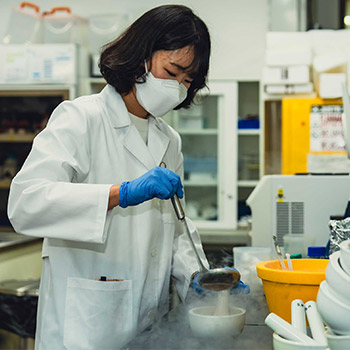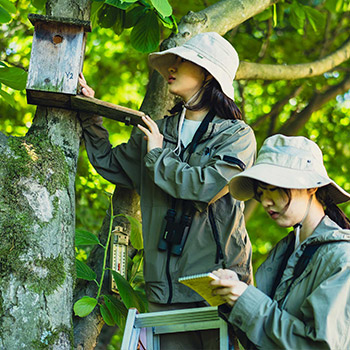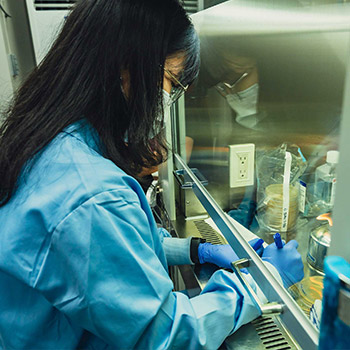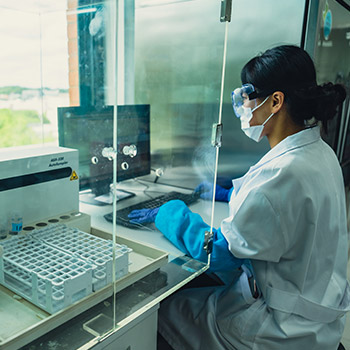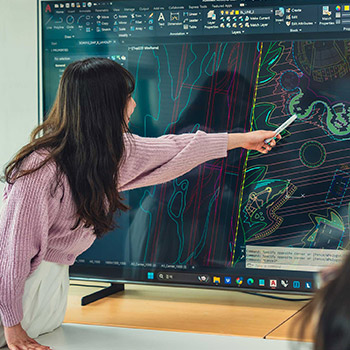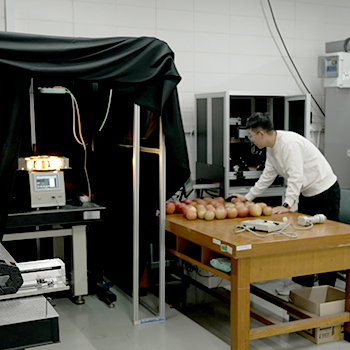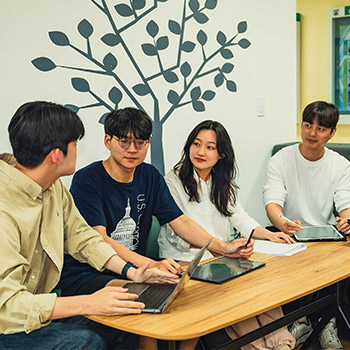Department of Plant Science
☎ +82-2-880-4540
200-4108
Department of Plant Science strives to broaden the scientific knowledge and educate on not only agronomic and horticultural crops but also human resources. Program in Crop Science and Biotechnology, Program in Horticultural Science and Biotechnology, and Program in Agricultural and Vocational Education were fully integrated into one academic organization in 2005 to provide students with a new and improved curriculum. This includes higher education in the natural sciences to enhance students’ fundamental understanding of plants and practical applications within the field of agriculture as well as humanities and social sciences for their knowledge or human resource development.
The crop science and biotechnology program and the horticultural science and Biotechnology program provide students with research opportunities and education on agricultural and horticultural crop production, genetic improvements, and theoretical and applied approaches for plant-environment interactions. Both programs adopt multidisciplinary approaches via cultivation and biotechnology for plant improvement and production. The vocational education and workforce development program is a practical study that develops, manages, and effectively utilizes the unique potential of human beings. The program provides research and education regarding the development of vocational and industrial human resource professionals who are essential in the 21st century.
The Plant Science Department will provide a set of tools to recognize the interconnectedness of plants, environment, and human resources. The faculty members will contribute to the improvement of advanced agriculture and life sciences and vocational human resource management.
The crop science and biotechnology program and the horticultural science and Biotechnology program provide students with research opportunities and education on agricultural and horticultural crop production, genetic improvements, and theoretical and applied approaches for plant-environment interactions. Both programs adopt multidisciplinary approaches via cultivation and biotechnology for plant improvement and production. The vocational education and workforce development program is a practical study that develops, manages, and effectively utilizes the unique potential of human beings. The program provides research and education regarding the development of vocational and industrial human resource professionals who are essential in the 21st century.
The Plant Science Department will provide a set of tools to recognize the interconnectedness of plants, environment, and human resources. The faculty members will contribute to the improvement of advanced agriculture and life sciences and vocational human resource management.

Programs
Program in Horticultural Science and Biotechnology
Horticultural crops are important sources of food, environmental enhancement, and personal enjoyment. The horticultural science program provides students with higher education and research opportunities in biotechnology, production, management, utilization, and postharvest handling of horticultural crops. The program focuses on plant breeding, genetics, basic and applied plant production technologies, environmental conservation, and postharvest technology.
Program research fields include: physiology, ecology, and genetics of horticultural crops and native plants. Research also covers the development of high quality, energy-saving, and environmentally friendly production systems, environmental and chemical control of plant growth and development, construction of genetic maps and the development of molecular markers, breeding of disease-resistant and functional cultivars using conventional methods and biotechnology, rapid mass production of virus-free plants and secondary metabolites, postharvest management and processing for product quality maintenance; advanced and protected horticulture and soilless culture, and the improvement of living environments using ornamental and landscape plants. Students in their second academic year can begin to specialize in horticultural science.
Students in graduate school can study in the following areas: vegetable science, pomology, floriculture and landscape plants, plant breeding, horticultural crop biotechnology and genomics, postharvest physiology and technology, and plant environment control. Career opportunities in horticultural science are numerous in all aspects of plant production and the related agribusiness fields both in the government and the private sector. Horticultural science students also have the opportunity to prepare for graduate school in preparation for teaching, research, or extension work.
Program research fields include: physiology, ecology, and genetics of horticultural crops and native plants. Research also covers the development of high quality, energy-saving, and environmentally friendly production systems, environmental and chemical control of plant growth and development, construction of genetic maps and the development of molecular markers, breeding of disease-resistant and functional cultivars using conventional methods and biotechnology, rapid mass production of virus-free plants and secondary metabolites, postharvest management and processing for product quality maintenance; advanced and protected horticulture and soilless culture, and the improvement of living environments using ornamental and landscape plants. Students in their second academic year can begin to specialize in horticultural science.
Students in graduate school can study in the following areas: vegetable science, pomology, floriculture and landscape plants, plant breeding, horticultural crop biotechnology and genomics, postharvest physiology and technology, and plant environment control. Career opportunities in horticultural science are numerous in all aspects of plant production and the related agribusiness fields both in the government and the private sector. Horticultural science students also have the opportunity to prepare for graduate school in preparation for teaching, research, or extension work.

Faculty
| Name | Major | TEL | |
|---|---|---|---|
| Professor Choi Doil |
Molecular Genetics | +82-2-880-4568 | doil@snu.ac.kr |
| Professor Chun Changhoo |
Vegetable Science | +82-2-880-4567 | changhoo@snu.ac.kr |
| Professor Kang ByoungCheorl |
Molecular Breeding and Genetics | +82-2-880-4563 | bk54@snu.ac.kr |
| Professor Huh Jin Hoe |
Plant Developmental Genetics | +82-2-880-4562 | huhjh@snu.ac.kr |
| Professor Lee Eun Jin |
Post Harvest Biology and Technology | +82-2-880-4565 | ejinlee3@snu.ac.kr |
| Associate Professor Segonzac Cecile Marie Helene |
Horticultural Crop Molecular Physiology | +82-2-880-2229 | csegonzac@snu.ac.kr |
| Assistant Proffesor Hyo Beom Lee |
Floricultural Sciences | +82-2-880-4561 | hyobumi1003@snu.ac.kr |
| Assistant Professor Tae In Ahn |
Greenhouse Horticulture and Plant Factory | +82-2-880-4564 | tiahn@snu.ac.kr |
| Assistant Professor Rho, Hyungmin |
Pomology & Environmental Plant Physiology | +82-2-880-4566 | tonyrho@snu.ac.kr |





